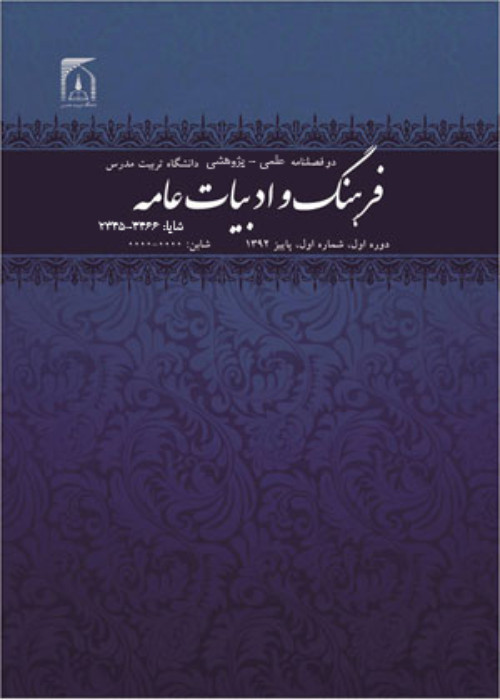Goal-Oriented Storytelling in the Process of Behavioral Change in Sindbad-Nameh's Fictional Character
A popular media in the past, folktales were used for entertainment purposes. They also played an essential role in education. Education is the basis of awareness and change, and some of these stories are intended to change the intellectual structure and the practical behavior of fictional characters. In other words, such stories have had a therapeutic function. Sindbad-Nameh is one of those surviving stories from the distant past in which narrative possibilities are used to change the existing conditions. This article reads Sindbad-Nameh descriptively, using content analysis method to answer the fundamental question of how the inner stories of Sindbad-Nameh change the protagonist of the story in the process of meaning-making; and why are some narratives unsuccessful in this attempt? The whole body of the narrative tools in Sindbad-Nameh show the progressive process of changing the characterchr('39')s action. They guide the kingchr('39')s mind to self-awareness and self-control and prevent him from making hasty decisions. The structured group of the in-house narratives told by the seven viziers</em> allows the process of changing their targetchr('39')s mind and action, i.e. the king, because they enjoy meaningful suspensions. Like the links of a chain, the viziers’ stories support each other and have a unity of content and structure. The reason may be the long-term goal and the written plan that the viziers</em> are pursuing. On the other hand, the tales of the maiden cannot save the king due to their structural and conceptual disruption, and the lack of intellectual cohesion. These thematic ruptures can also be attributed to the maidenchr('39')s distress and anxiety. In folktales, a recurring element is womenchr('39')s deception and betrayal, one that is also highlighted in Sindbad-Nameh due to the nature of the storychr('39')s subject matter
- حق عضویت دریافتی صرف حمایت از نشریات عضو و نگهداری، تکمیل و توسعه مگیران میشود.
- پرداخت حق اشتراک و دانلود مقالات اجازه بازنشر آن در سایر رسانههای چاپی و دیجیتال را به کاربر نمیدهد.


